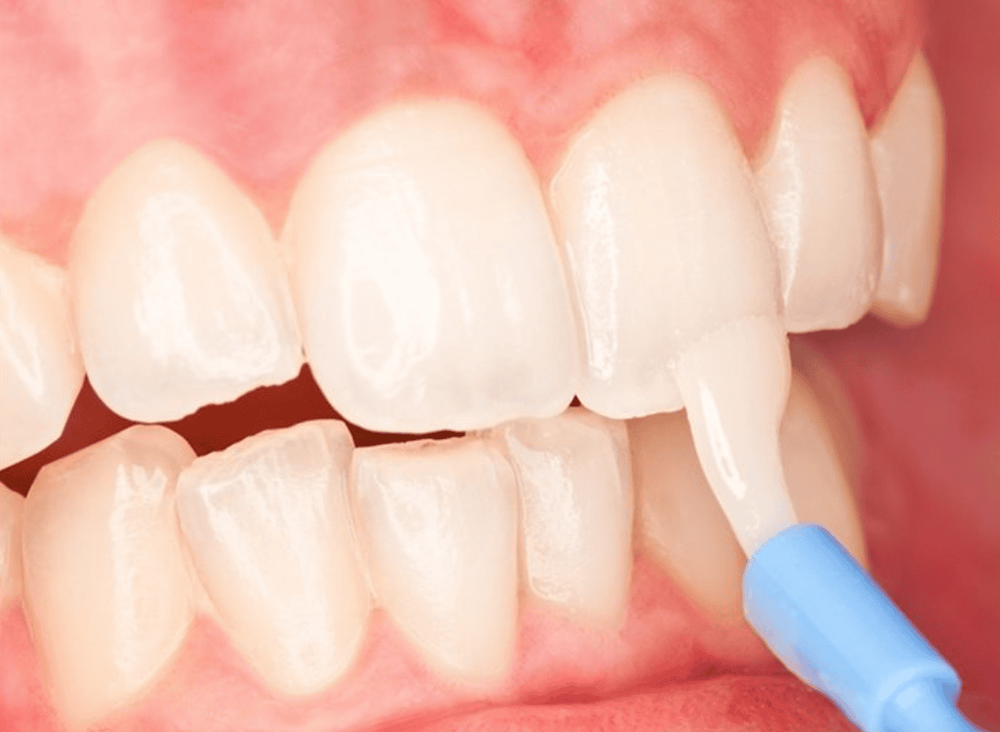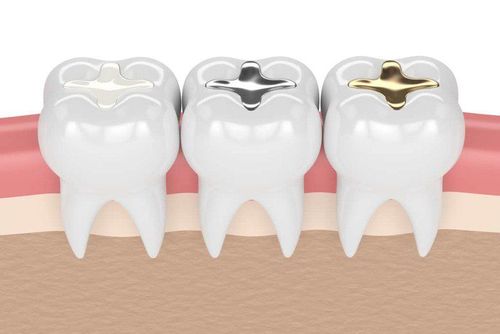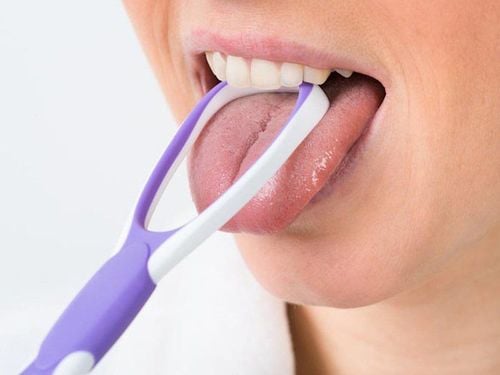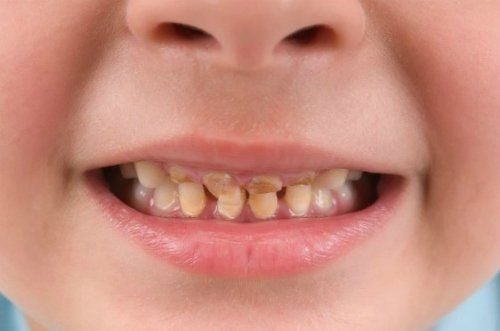This is an automatically translated article.
Tooth decay occurs when bacteria form a plaque that erodes teeth and gum tissue, forming holes in the tooth's surface. If plaque breaks down the enamel, bacteria can enter and damage the nerves and blood in the pulp. Therefore, topical Fluoride is a product that works to prevent tooth decay.1. What is Fluorine?
Fluoride is a natural mineral that helps prevent tooth decay. This is a method of oral health treatment that has been widely used in the past few decades. Fluoride helps strengthen tooth enamel, preventing bacteria from damaging teeth and gums. Enamel is considered the outer protective layer that surrounds each tooth. Fluoride acts as a shield for the enamel layer from the impact of bacteria that break down enamel, thereby preventing sensitivity to pain caused by acids.Fluoride toothpaste is a highly concentrated form of fluoride applied to the tooth surface by a dentist or other healthcare professional. It is not a permanent surface coating, but due to its adhesive properties, it can adhere to tooth surfaces for hours.
2. Indication of fluoride toothpaste
Fluoride is indicated in the following cases:Patients at moderate and high risk of caries, especially children aged 5 years and under. Reconstruction of lesions in root dentin. In the elderly to prevent increasingly common root dentin damage, higher fluoride concentrations may be required. On severe enamel lesions, higher fluoride concentrations may also be required for remineralization. Prevents tooth decay on the root surface. Fluoride application around orthodontic braces and brackets. However, this method is not recommended for use in patients with low or no risk of tooth decay and who live in areas with fluoridated water. Fluoride topical is contraindicated in patients with gingivitis and oral disease.

Fluor là một khoáng chất tự nhiên giúp ngăn ngừa sâu răng thường có trong kem đánh răng
3. Fluoride coating process to prevent tooth decay
Before applying fluoride to the tooth surface, the patient should have the tooth surface cleaned by taking tartar. After that, wait for the teeth to dry and use a cotton swab with fluorine varnish to cover the tooth surface with a thin layer.Patients should not chew, eat for about two hours after applying the drug. Because the patient can remove the fluoride topical by brushing, brushing should be avoided on the day of application.
There is no convincing answer as to the optimal frequency of application. In general, experts recommend topical treatments four times a year for patients at high risk for caries. In Denmark, more than 90% of caries prevention programs in the city are used to provide topical fluoride to children under 18 years of age.
4. Some advantages and disadvantages of using fluorinated surfactants
Advantages of using fluorine to prevent tooth decay:Fluoride dries quickly and will set even in the presence of saliva. Because of its strong adhesive properties, fluoride toothpaste can adhere to tooth surfaces for many hours. Based on published studies, fluoride topical when applied by a professional will not cause oral fluorosis, even in children under 6 years of age. Since no fluoride trays are required, they are suitable for use in patients with a strong vomiting reflex. Fluoride surface treatments have been shown to reduce the number of pathogenic bacteria S. Mutans by more than tenfold. Fluoride topicals are more concentrated than fluoride foams and gels. They can be applied easily and quickly. Cons:
Due to the color and adhesion of some fluoride topicals, they may cause a temporary change in the surface color of teeth as well as some fillings. When the fluoride surface coating is worn away by eating and brushing, the yellow color fades. In some patients, the taste of topical medications can cause nausea, especially when eating food within 24 hours of treatment.

Ngừa sâu răng với flour bôi bề mặt răng
5. Conclusion
Fluoride topical has been shown to be an effective agent in the management of caries. In addition to preventing tooth decay, fluorinated tooth surfaces are also used to treat sensitive teeth and even fill cavities by promoting remineralization of caries. Some use it as a temporary primer or in combination with other temporary primers.Fluoride has recently been used more and more in dentistry because it is quick and easy to make. Side effects or complications from using fluoride topical are rare and studies show it to be safe for young children. The implementation of the procedure is simple, making it suitable and practical for use in dental clinics.
Please dial HOTLINE for more information or register for an appointment HERE. Download MyVinmec app to make appointments faster and to manage your bookings easily.













